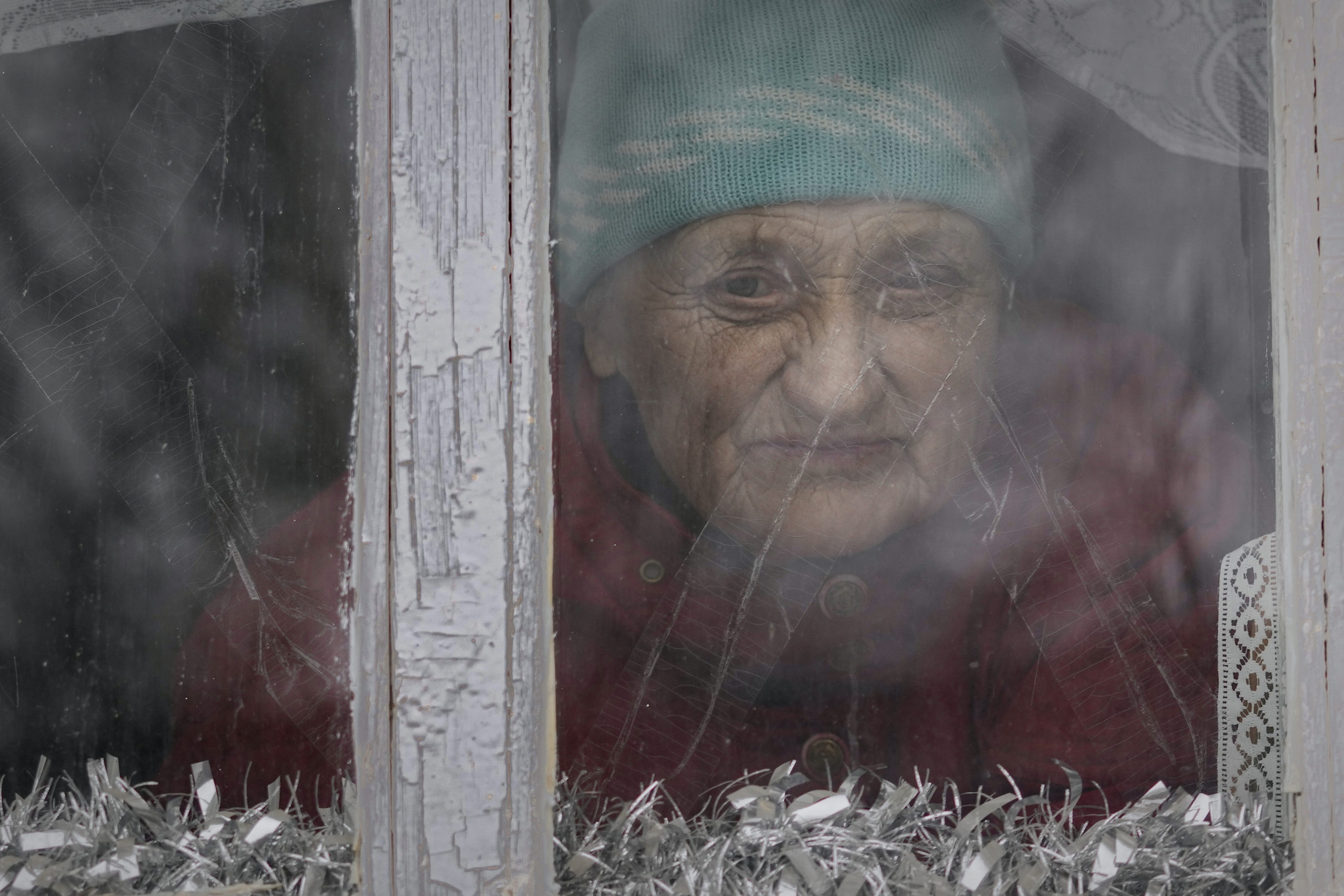 1
1 1
1
BRUSSELS (AP) — A new day of high-level, high-stakes diplomacy beckons with European leaders striving to reinvigorate stalled peace talks between Russia and Ukraine, as Moscow and NATO allies put on a show of resolve by continuing to mobilize their forces.
Here’s a look at what is happening where and why:
AFTER MOSCOW, ALL EYES ON UKRAINE
After more than five hours of talks with President Vladimir Putin, French President Emmanuel Macron shuttled Tuesday to the capital of Ukraine to brief President Volodymyr Zelenskyy on his meeting with Russia’s leader and share details of what might be needed to avert an invasion.
Sitting prominently in the spotlight of international diplomacy, Putin reiterated Monday his opposition to NATO’s continued expansion, mostly to Ukraine, but he did signal his willingness to keep talking, even though more than 100,000 Russian troops are amassed near Ukraine and thousands more in Belarus.
Macron, who’s trying to revive the “Normandy Format” peace talks aimed at ending almost eight years of fighting in eastern Ukraine in which more than 14,000 people have died, said Tuesday that his meeting with Putin helped to ensure that “there’s no degradation and no (further) escalation.”
Macron’s trying to promote the European Union’s so-far marginal role in a dispute in its own backyard currently being managed by the United States and Russia. He also faces an election in April. But he said his “objective is met” from the meeting in Moscow; to “prevent an escalation and open new perspectives.”
After meeting Zelenskyy, Macron will again hold phone talks with Putin, and head to Berlin to huddle with German Chancellor Olaf Scholz and Polish President Andrzej Duda, who has begun to play a more prominent diplomatic role recently and whose country borders western Ukraine and Belarus.
The Normandy format talks between Russia and Ukraine were brokered by France and Germany in 2015 and helped end large-scale hostilities in eastern Ukraine but the conflict has continued to simmer for years.
Germany remains under pressure for its relatively tepid role in the Ukraine crisis, but Foreign Minister Annalena Baerbock has been in Kyiv, talking to Prime Minister Denys Shmyhal. She also traveled on Tuesday to the “line of contact” with pro-Russia separatists in eastern Ukraine.
THE DRUMS OF WARGAMES
As the high-stakes diplomacy continues, Russia has kept up its military pressure, while NATO allies have been deploying troops and working on new plans for a longer-term presence in Eastern Europe; to deter Russia, not defend Ukraine.
Russia’s Defense Ministry said Tuesday that six large landing ships were moving from the Mediterranean to the Black Sea, where they will take part in military exercises. The buildup of Russian troops in Belarus near Ukraine’s northern border continues too, for snap joint wargames.
NATO’s chief had warned of high-end fighter jets and S400 missile systems were deployed to Belarus and now says that “enabling capacities” like command and control and logistics units as well as field medical centers are being set up.
NATO allies are now discussing plans to send battalions of troops to Slovakia, Hungary, Bulgaria and Romania. No decision on the move has been made yet, but it could mirror NATO’s presence in Estonia, Latvia, Lithuania and Poland, where 5,000 troops are deployed in a mission that’s run since 2016.
In London, Prime Minister Boris Johnson said the U.K. is ready to bolster NATO forces in Latvia and Estonia. Johnson said he was considering dispatching RAF Typhoon fighters and Royal Navy warships to southeastern Europe.
Britain is sending 350 troops to Poland to help bolster NATO forces in eastern Europe. NATO as an organization is not providing military support to Ukraine and will not come to the rescue should Russia invade, but some individual countries are helping to support the Ukrainian armed forces. The U.K. has already sent anti-tank weapons.
Romania’s defense minister said Tuesday that more than 100 U.S. military personnel have already arrived in Romania ahead of a deployment of around 1,000 NATO troops expected in coming days.
___
Lorne Cook in Brussels, Sylvie Corbet in Kyiv, Jill Lawless in London, and Stephen McGrath in Bucharest, Romania, contributed to this report.
___
Follow all AP stories on the crisis over Ukraine at https://apnews.com/hub/russia-ukraine